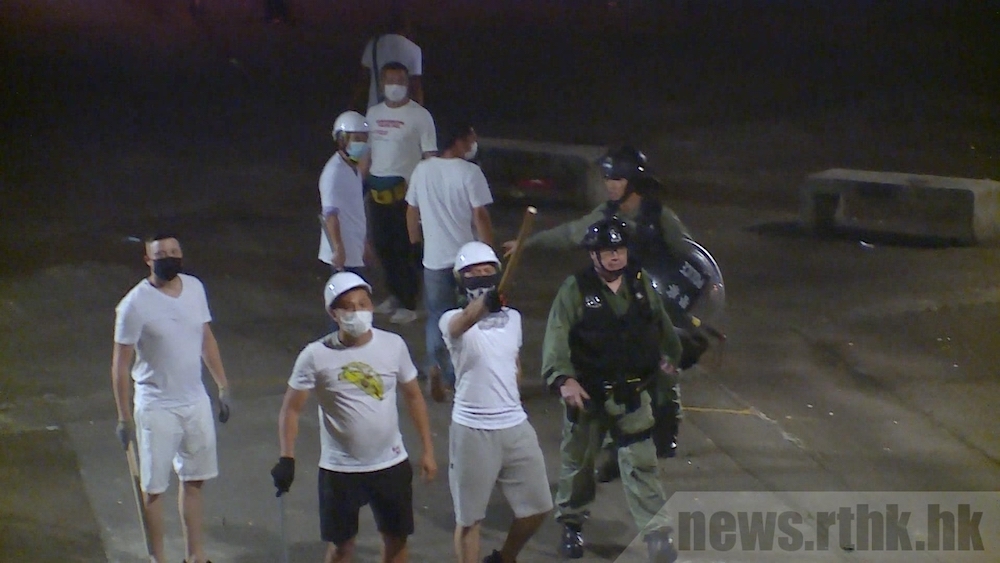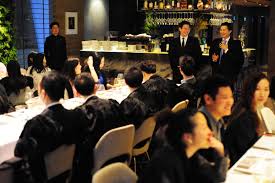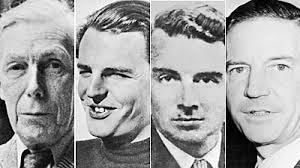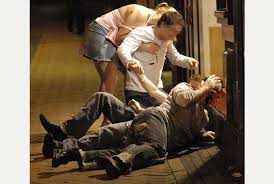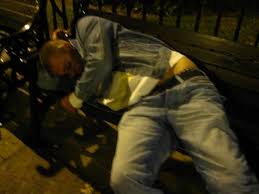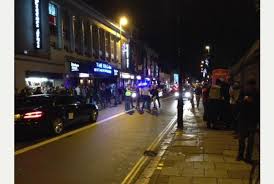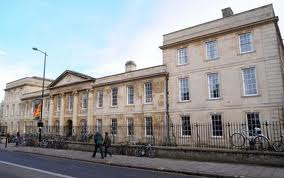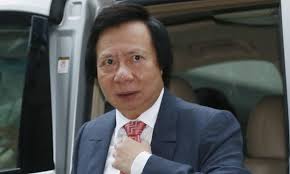Well, here’s the straw that broke the camel’s back.
Tibet, Xinjiang, South China Sea, Taiwan, Hong Kong. And a ridiculous number of individual cases of persons taken hostage by a state.
In the words of the late, great Gill Scott Heron: ‘It follows a pattern, if you know what I mean…’
The straw is the case of an Irish businessman, recounted below in the Irish Independent.
I am less diplomatic than the thoroughly decent Winston Lord, who is quoted. What I say is: ‘Fuck Xi Jinping and his miserable, proto-fascist government.’
I should also say that I hope you will believe me that it is pure coincidence that it is the case of a white male that has brought me this point. He just happened to be that straw.
…..
In February 2019, Richard O’Halloran flew to Shanghai for a series of meetings and has been ‘held hostage’ by the authorities ever since. The Irish Government is facing growing calls to step up its response
Close knit: The O’Halloran family in happier times with Isabella, Tara, Ben, Scarlett, Richard and Amber all together
Peter Goff
February 06 2021 02:30 AM
As Dublin prepares to light up buildings red to celebrate Chinese New Year, an Irish businessman detained in Shanghai for “corporate ransom” has now missed two Christmases with his wife and four young children.
Richard O’Halloran, a 45-year-old Dublin businessman, has been told he must pay $36m to the Chinese authorities before he can leave the country. His plight has put the potential hazards of doing business with China under the spotlight.
Critics say this is the latest example of Beijing’s lack of respect for the rule of law, international norms and human rights, while there have also been calls for the Irish Government to be more assertive.
Winston Lord, a former US ambassador to China, says O’Halloran’s situation was “a very sad and frustrating and indeed cruel case”. “This is a slippery slope and unless countries push back firmly on this kind of unfair detention, it can lead to greater and greater outrages,” he says.
The businessman’s wife, Tara O’Halloran, said last week on RTÉ radio that “we are crying out to the Government to step in and take control and demand he is released because he is innocent and he is not getting enough help”.
She said he had a serious lung condition, has suffered seizures in China, has had to be resuscitated twice, has regular panic attacks and that his mental health was at a low ebb.
“We are pleading for him to come home on humanitarian grounds, his health is deteriorating, he is very ill,” she said. “It can’t go on much longer; he won’t survive much longer over there on his own.”
President Michael D Higgins wrote to Chinese President Xi Jinping on December 23 and received a reply on January 29 suggesting the authorities on both sides “maintain communication and co-ordination to create conditions for an early and proper solution to the case”.
Lord says he was encouraged by the correspondence, “but it never should have got to this point”.
“I’m reluctant to criticise a friendly government, but I have to say in all candour that until this recent move by the Irish President, which I warmly welcome, the Irish Government’s performance in this has been disappointing, to put it is as diplomatically as I can,” he says.
“It has an interest, both in terms of protecting its own citizens but also just in pure humanitarian terms, and also for its reputation, to move aggressively to try to resolve this situation. And I think they’ve been very slow and tepid in their efforts until recently.”The Department of Foreign Affairs said that while it could not comment on the details of an individual case, it “continues to provide all possible consular support and assistance to Mr O’Halloran and attaches the utmost importance to his welfare”. It said the case has been raised regularly at “senior political and diplomatic level” with the Chinese authorities.
The statement added that Foreign Affairs Minister Simon Coveney “remains actively and personally engaged, and senior officials in Dublin, Beijing and Shanghai continue to do everything possible to ensure that Mr O’Halloran can return home”.
‘We can’t see any progress’
In response, Tara O’Halloran told RTÉ: “That is not enough. A couple of phone calls and a couple of emails to the authorities is not enough. They need to take a stance and stand up and say that he is being illegally detained; they have no basis for holding him. We can’t see any progress and I am literally begging for help. I’m begging them and begging them and begging them. For two years I’ve been begging them.”
Close knit: The O’Halloran family in happier times with Isabella, Tara, Ben, Scarlett, Richard and Amber all together
Richard O’Halloran, a relative of the late Fine Gael taoiseach Garret FitzGerald, is a director of China International Aviation Leasing Service Co Limited (CALS Ireland). The complex case that he has found himself embroiled in centres on an Airbus A330 airplane that CALS has leased to Finnair, according to David Maughan, partner with law firm William Fry, which acts for CALS.
The chairman of CALS, Min Jiedong, was arrested in China on charges of running an illegal crowdfunding scheme and was sentenced to 10 years in prison. There is no evidence that he used the money to buy the Airbus but the authorities are targeting it because it is a major asset connected to him. In February 2019, O’Halloran flew to China to hold meetings with colleagues after Min was arrested. When he attempted to board his return flight after a week of meetings, he was detained and told he would not be able to leave China. The charges against Min predate O’Halloran’s time with the company, and Min had agreed to buy the plane 10 months before he had joined CALS, Maughan says.
During the trial, both the prosecutor and Min told the court that O’Halloran had no involvement in Min’s crowdfunding in China and should be allowed to return to Ireland.“He is not guilty of any crime, nor has he been charged with any crime. He is being illegally detained… I would call this corporate ransom,” Maughan says.
O’Halloran testified as a witness four times in Min’s prosecution, and following Min’s sentencing he was subpoenaed to an enforcement court to give a financial account of CALS Ireland. On each of these five occasions, the Chinese authorities denied requests from the Irish Embassy to have representatives attend as observers. The court appointed an interpreter but O’Halloran was not allowed any legal representation in court, nor was he given any documentation relating to the appearances, Maughan says.
As part of a proposal to secure O’Halloran’s release, CALS sent the Chinese court $200,000 some weeks ago as a “good-faith payment”, Maughan says, but when the money arrived in China, police interrogated O’Halloran for six hours about the source of the funds. “During that interrogation the police said that the sum of $6m should be paid to resolve the case, and they also told him that his exit ban had been lifted,” he says.
O’Halloran booked the next flight home, “but when he got to the airport, he was denied access to board the aircraft,” Maughan says, “and he was escorted out of the airport by seven police officers wearing bodycams”.
At the latest hearing on February 2, in front of three judges, “they said that he was very healthy, despite all his many health issues, and is personally responsible to pay back the figure of $36m,” Maughan says.
“We were flabbergasted. The Chinese side picked this number of $36m, which no one knows where it came from. We haven’t been party to any of the proceedings.”
Response: Simon Coveney “remains actively and personally engaged” in the Richard O’Halloran case, according to the Department of Foreign Affairs
He says they had made several proposals to the Chinese ambassador in Dublin and to Coveney to try to resolve the issue, including resigning his position, handing over control of the bank accounts to the courts, or allowing the Chinese court to take over Min’s shares in related companies — including one in the Cayman Islands that owns the plane — so they could then control the assets.
In 2019, CALS agreed with a third party after a public tender process to sell the aircraft. “But the Chinese courts turned down Richard’s request that the aircraft be sold. Unfortunately, due to the global pandemic, the aircraft is worth half of what CALS had agreed to sell the aircraft for,” Maughan says.
Another proposal involved O’Halloran returning to Dublin and continuing to work for CALS to manage the five remaining years of the lease on the plane to Finnair, at which point the plane could be sold or flown to China. None of the proposals were accepted, Maughan says.
“If the Chinese side took the shares off Min, Richard O’Halloran would be home next week — if someone would take a big picture approach,” he adds. “There are plenty of solutions here if the Chinese wished to engage. I welcome Xi’s comments but it will take engagement. And I would not be optimistic, based on what the three judges said; that Richard and the board come up with $36m.”
Barring visitors from leaving is a tactic used widely in China, and the Irish Department of Foreign Affairs now advises travellers to China that “Chinese authorities may place an exit ban on an individual to prevent them from leaving the country”. It adds that an exit ban “may be placed on an individual, their family or an employer; or in a criminal or civil matter, including a business dispute”.
The travel advisory says “such bans, which are distinct from detention or imprisonment, are part of the Chinese legal process and may endure for months, or longer”.
The US State Department uses stronger language, saying China “arbitrarily enforces local laws, including by carrying out arbitrary and wrongful detentions and through the use of exit bans on US citizens and citizens of other countries without due process of law”.
Charles Parton, a fellow of the Royal United Services Institute and a former British diplomat who spent more than two decades working in or on China, says that the taking of “hostages” was not unusual in commercial disputes in China.
“It’s quite a common tactic at a local level, provincial or below, where they’ve got contacts in the local government and in order to get their way in an argument with a foreign company, they deliberately take a hostage in this way,” he says.
Tara O’Halloran said in the recent interview that for a long time she had not spoken out about her husband’s plight because she had been advised that quiet diplomacy would be the best approach.
“We had faith in the Irish Government that they were going to help us, that they were going to intervene, help us, and we were advised not to go public because it might upset the Chinese, that they might retaliate, they might decide to keep him longer. But I can’t sit back and let him be there for another two years,” she said.
Observers say that, in most cases, exit bans never come to light because the parties involved do not publicise them in the hopes of finding a quiet resolution.
Parton says while each situation was different, he felt that, in general, people should speak out about these bans. “I think this business of keeping a low profile is not always wise,” he says. “That plays along with their game. I think you should make as much noise about it as one can. This is an example of local rather than central abuse and it should be called out in my view.”
Alexander Dukalskis, an associate professor at University College Dublin’s School of Politics and International Relations, says that, in general terms, the human rights situation has regressed “from an already low level” since Xi Jinping took the reins of the Communist Party of China (CCP) in 2012.
“Human rights lawyers have been systematically repressed under Xi, which further compounds the problem because it eliminates a source of protection. The previous leadership of Hu Jintao was more liberal — by CCP standards — than the current party leadership. More criticism was tolerated in the political sphere and activists were able to operate within certain boundaries,” says Dukalskis, who is author of the forthcoming book Making the World Safe for Dictatorship.
“Things have tightened under Xi, in some areas drastically so,” he adds. “China’s policies of repression in Xinjiang, for example, were already harsh before 2014, but since then they have become draconian, possibly even genocidal.”
On the international stage, China has been accused recently of adopting an aggressive form of “Wolf Warrior diplomacy”, and generally taking a more combative approach to its multilateral relations.
Lord, the former ambassador, says that things were getting worse “both domestically in terms of oppression and internationally in terms of adventurism, and in terms of interfering in other countries and pressuring other citizens”.
As China plays an increasingly important role on the world stage, Parton says countries have to stand up against human rights abuses or the situation will only get worse.
“Bullies are bullies whether they are at the international level or the playground level. And if you give way to bullies, what do you get? You just get more bullying,” says Parton, who worked with the EU delegation in Beijing for his final China posting.
More, later:
This guy is still going to Hong Kong. I guess the Hongkies need him, given what is going on there:
AN Oxford City councillor has announced he will be stepping down from his role with immediate effect as his work requires him to spend an increasing amount of time overseas.
Councillor Paul Harris will no longer represent the ward of St Margaret’s on Oxford City Council.
He was elected in 2018 and is a member of the Liberal Democrat Group on the council and has served as the opposition spokesperson for cleaner, greener Oxford, cycling, tourism and the city centre.
ALSO READ: ‘Lockdown only needed due to PM’s failure’, says Layla Moran
He has combined his work in Oxford with a career as a human rights barrister, often working in Hong Kong. Recent developments there, and restrictions on travel, have meant he has spent increasing amounts of time in Hong Kong and can no longer represent his ward as he would wish.
His seat will remain vacant until a by-election is held and St Margaret’s ward continues to be represented by Councillor Tom Landell Mills.
Councillor Landell Mills will cover the portfolio areas Mr Harris has held for the opposition in the run up to the elections.
Mr Harris said: “I have immensely enjoyed my almost three years as a councillor and will very much miss both colleagues and staff, as well as local residents in St Margaret’s Ward. I am pleased in particular I managed to get the towpath through St Margaret’s re-surfaced at last which was my main promise when I stood for election in 2018.
“The reason for my resignation is that I am relocating to Hong Kong with which I have work and family connections. I am a barrister specialising in human rights and I have been asked to be chairman of the Hong Kong Bar for the year 2021.”
